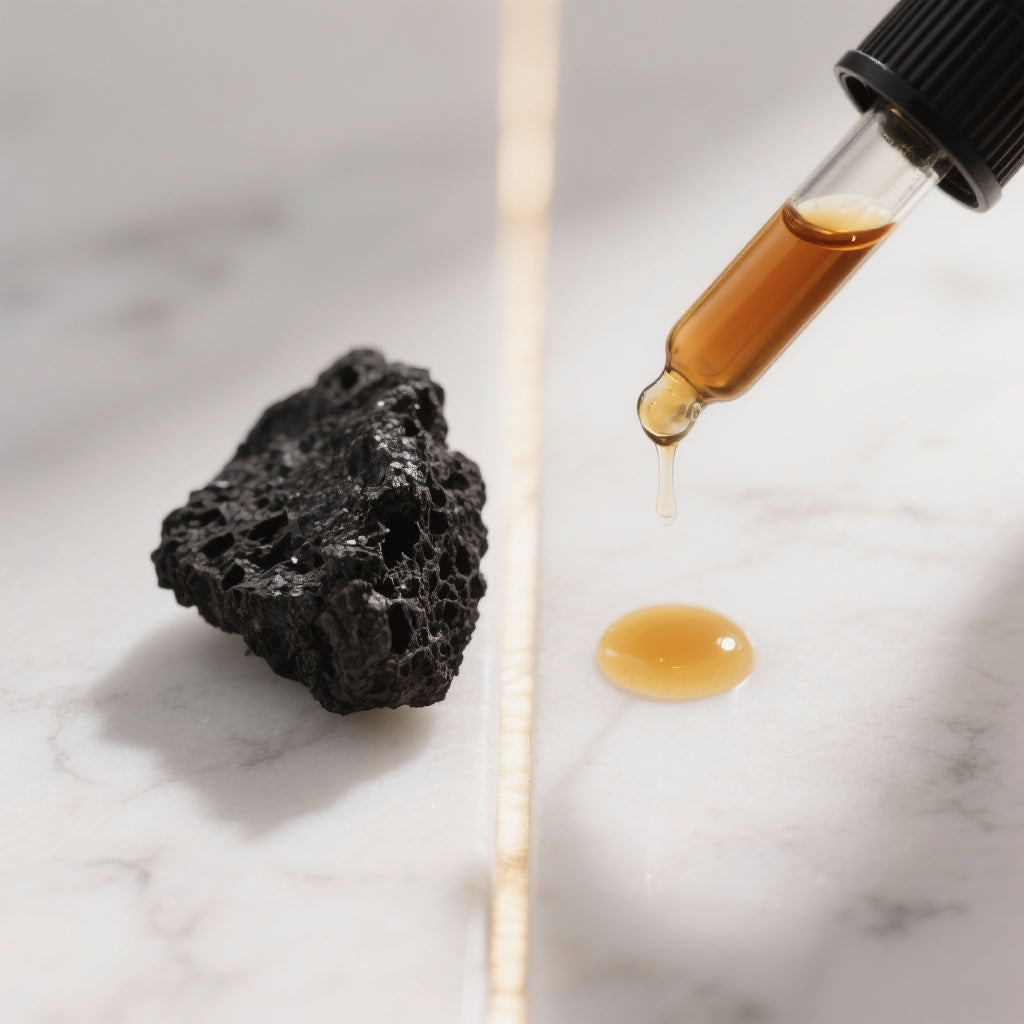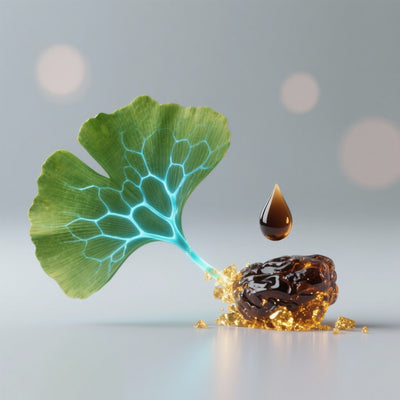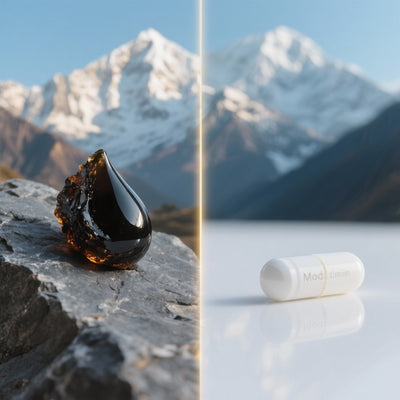Activated charcoal vs. fulvic acid: Which natural chelator should you choose for your detox?
In a world where our bodies are exposed daily to a myriad of toxins, from environmental pollutants to pesticide residues, the quest for effective and natural detoxification solutions has never been more relevant. Two names constantly come up in wellness conversations: activated charcoal and fulvic acid . Both are touted for their purifying properties, but they operate in radically different ways. While the former acts like a powerful sponge, the latter behaves like a smart carrier. So, how do you know which one is best suited to your needs? This comprehensive guide is designed to demystify these two detox giants, analyze their mechanisms, benefits, and limitations, so you can make an informed choice for your health.
Understanding Chelation: The Key to Detoxification
Before diving into our comparison, it's essential to understand the concept of "chelation." Detoxification isn't simply "cleansing." It's a complex biochemical process where the body neutralizes and eliminates toxins. A chelator is a substance capable of chemically binding to toxins, particularly heavy metals like lead, mercury, or arsenic, to form a stable, soluble compound that can then be eliminated naturally.
The body has its own chelation systems, but when faced with a high toxic load, external support can be beneficial. This is where natural chelators like activated charcoal and fulvic acid come into play, offering distinct approaches to help our body regain its balance.
Activated Charcoal: The Emergency Toxin Sponge
Activated carbon, or activated charcoal, is a very fine black powder obtained by heating carbon-rich organic materials (coconut shells, wood, peat) to very high temperatures. This process, known as "activation," creates millions of micropores on its surface, giving it a phenomenal adsorption capacity.
Mechanism of Action: Non-Selective Adsorption
Activated charcoal works by adsorption (not absorption). Think of it as a molecular magnet. Toxins and chemicals in the digestive tract attach to its porous surface via an electrical charge, preventing them from being absorbed by your body. The entire mixture (charcoal + toxins) is then eliminated in your stool.
"Activated charcoal is an exceptional gastrointestinal decontamination agent for acute poisoning. Its adsorption surface is so vast that a single teaspoon is equivalent to the surface area of a football field."
Main Benefits and Uses
- Emergency intervention: It is globally recognized in emergency services for treating certain drug poisonings or intoxications.
- Reduction of gas and bloating: By adsorbing the gases produced by fermentation in the intestine, it can relieve digestive discomfort.
- Kidney health: It can help eliminate waste products like urea, thus relieving kidney function in some patients.
Limitations and Precautions for Use
The main drawback of activated charcoal is its lack of selectivity . It adsorbs everything in its path: good and bad. It can therefore bind to vitamins, minerals, and medications, reducing their effectiveness. This is why it must be taken at least two hours apart from any food, supplements, or medications. Furthermore, it is ineffective against heavy metals, alcohol, or corrosive substances and can cause constipation if not taken with sufficient hydration.
Fulvic Acid: The Intelligent and Systemic Carrier
Less well-known to the general public, fulvic acid is nonetheless a true marvel of nature. It is a natural organic compound resulting from the decomposition of plant matter over millions of years, found in soil, compost, and sediments such as Shilajit . Its small molecular size allows it to easily penetrate cell membranes.
Mechanism of Action: Selective Chelation and Bioavailability
Fulvic acid works in a much more sophisticated way. It acts as a selective chelator. It has the unique ability to bind to heavy metals and toxins, escorting them out of the body. But its ingenuity doesn't stop there: it also acts as a delivery vehicle for nutrients.
When it encounters minerals and trace elements, it transforms them into a bioavailable ionic form, transporting them directly into the cells. It is a dual-action agent: it removes waste and delivers nutrients .
Main Benefits and Uses
- Heavy metal detoxification: It is particularly effective at chelating and eliminating heavy metals accumulated in tissues.
- Improved nutrient absorption: It can increase the bioavailability of minerals and vitamins from your diet up to 60 times.
- Mitochondrial and energy support: By transporting nutrients to the heart of cells, it nourishes the mitochondria, our energy factories.
- Powerful antioxidant and electrolyte: It helps neutralize free radicals and maintain the body's fluid and electrical balance.
To learn more about incorporating superfoods like Shilajit into your daily routine, explore the articles on our information blog .
Face-to-Face: The Verdict
So, activated charcoal or fulvic acid? The answer depends entirely on your objective. They are not competitors, but tools with different applications.
When to Choose Activated Charcoal?
Opt for activated charcoal for a targeted, short-term action on the digestive system .
- After a meal that was too heavy or suspicious, to avoid indigestion.
- In case of excessive bloating and gas.
- When travelling, it can be used as a first aid kit in case of mild food poisoning.
Think of it like a firefighter: it intervenes in an emergency to extinguish a digestive fire, but it is not intended for daily maintenance.
When to Choose Fulvic Acid?
Choose fulvic acid for deep, systemic, and long-term detox support .
- For a gentle but continuous detoxification of heavy metals.
- To optimize your nutritional status and mineral absorption.
- To improve your cellular energy and overall vitality.
- To support gut health and microbiome balance.
Think of it like a gardener: it nourishes the soil (your cells), pulls out the weeds (toxins) and makes sure your plants (your body) get all the nutrients they need to thrive.
FAQ: Your Questions About Natural Chelating Agents
Can I take activated charcoal every day?
This is not recommended. Prolonged use can lead to nutritional deficiencies by binding to the vitamins and minerals in your diet. Reserve it for occasional use or short, targeted courses of treatment, always under the guidance of a healthcare professional.
Is fulvic acid safe?
Yes, when it comes from a pure, high-quality source like purified Shilajit. It is generally considered very safe for long-term use at the recommended doses. Be sure to choose a product tested for heavy metals and contaminants.
Which one is best for heavy metals?
Without a doubt, fulvic acid . Activated charcoal is not effective at binding heavy metals. Fulvic acid, on the other hand, is specifically studied for its ability to chelate these toxins and eliminate them from the body systemically.
Can they be used together?
There is generally no benefit to taking them simultaneously. The charcoal could neutralize the benefits of the fulvic acid. If you wish to use them as part of a protocol, they should be taken several hours apart. For example, fulvic acid in the morning for nutrition and energy, and activated charcoal in the evening, away from meals.
Conclusion: The Right Tool for the Right Task
The distinction between activated charcoal and fulvic acid is clear: it's a difference between an emergency intervention and fundamental support. Activated charcoal is the tool of choice for rapid, targeted digestive detoxification. Fulvic acid, on the other hand, is a valuable ally for a long-term wellness strategy, aiming for both deep cellular detoxification and nutritional optimization.
The choice, therefore, lies not in the superiority of one over the other, but in aligning their strengths with your personal health goals. By understanding their distinct roles, you are now equipped to intelligently integrate these gifts of nature into your routine. For ideas on how to incorporate these supplements into healthy drinks, visit our recipe blog , and for a healthier lifestyle, check out our lifestyle blog .
And you, what's your experience with these detox allies? Share your thoughts in the comments!











